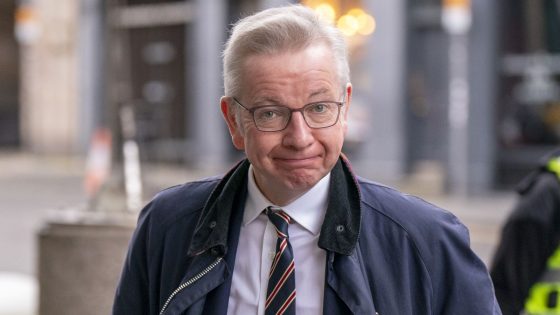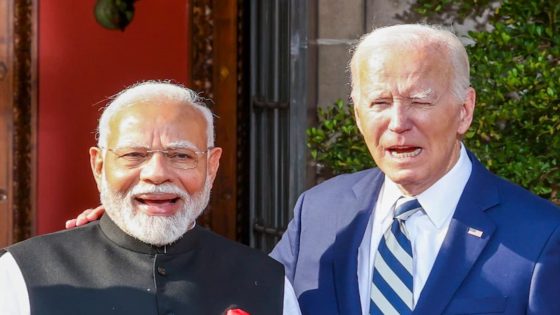Michael Gove is poised to unveil a new definition of extremism amid jitters in government at his plan.
The Politics at Jack and Sam’s podcast discusses the big announcement by Rishi Sunak’s government this week – designed to update and increase the number of organisations that are classed as “extremist” and put new limits on their activities.
👉 Listen above then tap here to follow Politics at Jack at Sam’s wherever you get your podcasts 👈
The plan, due to be launched on Thursday – subject to cross-government sign-off – will see a change in the definition.
The 9-year-old definition defines extremism as “vocal or active opposition to British values”.
The updated definition is going to, according to a source, be the “promotion or advancement of ideology based on hatred, intolerance or violence or undermining or overturning the rights or freedoms of others, or of undermining democracy itself”.
Government sources confirm this is the intent of the new wording but the exact phraseology has not been published.
Other ministers are cautious about the plan, suggesting that it is unclear who the definition will and won’t cover, amid fears that other groups – such as trans rights activists, gender critical organisations and even anti-House of Lords campaigners – could be caught by this new wider definition.
It will be for the government, in the first instance, to say who is and isn’t on the list.
Mr Gove will reject these fears, saying that the anti-democratic clauses mean that organisations such as trans rights groups will be fine.
The government is intending to release lists of organisations classed as “extremist”, and these groups will then be banned from meeting with ministers or other elected officials, receiving public money or seeing individuals appointed to government boards.
However, the guidance is non-statutory, meaning it will not give police or other law enforcement powers to deal with this issue. This is separate from proscription, the process of banning organisations that promote terror.
There are also fears that the government will use the new lists of extremists to try and embarrass Labour, pointing out links between Labour figures and the names on the government-determined lists. One government minister said Mr Gove was pursuing a “culture war” through this approach.
Further police powers to deal with behaviour on marches and other protests are likely to come at a later date.
Source Agencies



